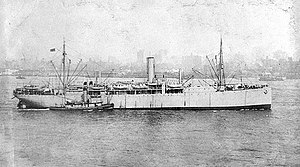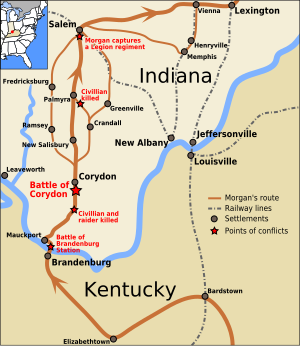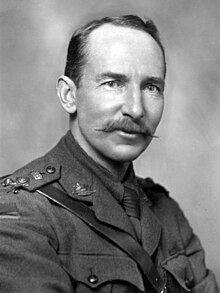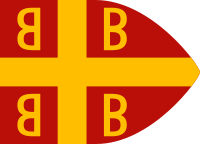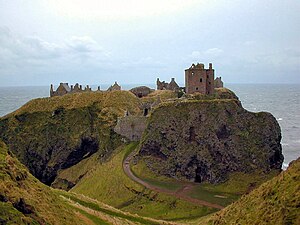Portal:History
The History Portal
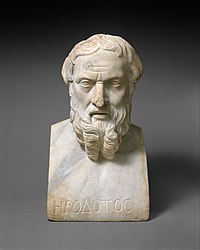
Herodotus (c. 484 BC – c. 425 BC) is often
considered the "father of history"
History (derived from Ancient Greek ἱστορία (historía) 'inquiry; knowledge acquired by investigation') is the systematic study and documentation of the human past. History is an academic discipline which uses a narrative to describe, examine, question, and analyse past events, and investigate their patterns of cause and effect. Historians debate which narrative best explains an event, as well as the significance of different causes and effects. Historians debate the nature of history as an end in itself, and its usefulness in giving perspective on the problems of the present.
The period of events before the invention of writing systems is considered prehistory. "History" is an umbrella term comprising past events as well as the memory, discovery, collection, organization, presentation, and interpretation of these events. Historians seek knowledge of the past using historical sources such as written documents, oral accounts or traditional oral histories, art and material artefacts, and ecological markers.
Stories common to a particular culture, but not supported by external sources (such as the tales surrounding King Arthur), are usually classified as cultural heritage or legends. History differs from myth in that it is supported by verifiable evidence. However, ancient cultural influences have helped create variant interpretations of the nature of history, which have evolved over the centuries and continue to change today. The modern study of history is wide-ranging, and includes the study of specific regions and certain topical or thematic elements of historical investigation. History is taught as a part of primary and secondary education, and the academic study of history is a major discipline in universities.
Herodotus, a 5th-century BCE Greek historian, is often considered the "father of history", as one of the first historians in the Western tradition, though he has been criticized as the "father of lies". Along with his contemporary Thucydides, he helped form the foundations for the modern study of past events and societies. Their works continue to be read today, and the gap between the culture-focused Herodotus and the military-focused Thucydides remains a point of contention or approach in modern historical writing. In East Asia a state chronicle, the Spring and Autumn Annals, was reputed to date from as early as 722 BCE, though only 2nd-century BCE texts have survived. The title "father of history" has also been attributed, in their respective societies, to Sima Qian, Ibn Khaldun, and Kenneth Dike. (Full article...)
Featured picture
Did you know (auto generated)

- ... that American Colossus, a history book that describes how a banker bailed out the U.S. government in 1895, was published around a time when the U.S. government bailed out banks?
- ... that Alfredo Frohlich formed an award-winning collection of Panamanian postal history that included items from as early as 1777?
- ... that the Labour Party received their highest share of the vote to date in the 1951 UK general election but still lost to the Conservatives, who received fewer votes?
- ... that What Hath God Wrought, the 2007 history of Jacksonian America written by Daniel Walker Howe, is dedicated to Andrew Jackson's "political nemesis" John Quincy Adams?
- ... that in the history of fisheries in the Philippines, the once-dominant local municipal fisheries were supplanted first by commercial fisheries, and then by aquaculture?
- ... that in 88 BC, Lucius Cornelius Sulla carried out the first coup d'état in Roman history?
Maximus the Confessor (Greek: Μάξιμος ὁ Ὁμολογητής, romanized: Maximos ho Homologētēs), also spelled Maximos, otherwise known as Maximus the Theologian and Maximus of Constantinople (c. 580 – 13 August 662), was a Christian monk, theologian, and scholar.
In his early life, Maximus was a civil servant, and an aide to the Byzantine Emperor Heraclius. He gave up this life in the political sphere to enter the monastic life. Maximus had studied diverse schools of philosophy, and certainly what was common for his time, the Platonic dialogues, the works of Aristotle, and numerous later Platonic commentators on Aristotle and Plato, like Plotinus, Porphyry, Iamblichus, and Proclus. When one of his friends began espousing the Christological position known as Monothelitism, Maximus was drawn into the controversy, in which he supported an interpretation of the Chalcedonian formula on the basis of which it was asserted that Jesus had both a human and a divine will. Maximus is venerated in both the Catholic and Eastern Orthodox Churches. He was eventually persecuted for his Christological positions; following a trial, his tongue and right hand were mutilated. (Full article...)
On this day
- 537 – The reconstructed Hagia Sophia in Constantinople was inaugurated; built as a church, it later became a mosque and a museum.
- 1831 – HMS Beagle departed Plymouth, England, on a voyage to South America that established Charles Darwin (pictured) as a naturalist.
- 1939 – A magnitude 7.8 earthquake struck central Turkey, destroying 90 per cent of the buildings in the area, and causing over 32,000 deaths.
- 1979 – Soviet–Afghan War: Soviet troops stormed Tajbeg Palace outside Kabul and killed Afghan president Hafizullah Amin and his 100–150 elite guards.
- 2007 – Former prime minister Benazir Bhutto was assassinated while leaving a Pakistan People's Party political rally at Liaqat National Bagh in Rawalpindi.
- Prince Rupert of the Rhine (b. 1619)
- Agda Meyerson (d. 1924)
- Chyna (b. 1969)
- Amy Vanderbilt (d. 1974)
Selected quote
As long as I breathe I hope. As long as I breathe I shall fight for the future, that radiant future, in which man, strong and beautiful, will become master of the drifting stream of his history and will direct it towards the boundless horizons of beauty, joy and happiness!
— Leon Trotsky, 20th century Russian revolutionary
Related portals
More Did you know...
- ... that on 26 April 1881 HMS Doterel (pictured) exploded, killing 143 of the 155 crew members?
- ... that causes of the deaths at the Berlin Wall included shooting, drowning, suffocation, suicide, and falling from a balloon?
- ... that the 19th-century swindler Bertha Heyman, known as "The Confidence Queen," conned men by pretending to be a wealthy woman who was unable to access her fortune?
- ... that only four great uncial codices have survived until the present day?
- ... that after World War II, Polish resistance organizer and Warsaw Uprising fighter Jan Mazurkiewicz was brutally tortured by the authorities in communist Poland?
- ... that tiny Paederus beetles may have caused some of the ten Plagues of Egypt?
- ... that the only known report of bloodshed during the simulated Nazi invasion of Winnipeg was from a woman who cut her thumb while preparing toast?
- ... that Dacian bracelets were used as currency and votive offerings?
Topics
Categories

History • By period • By region • By topic • By ethnic group • Historiography • Archaeology • Books • Maps • Images • Magazines • Organizations • Fictional • Museums • Pseudohistory • Stubs • Timelines • Chronology • People • Wikipedia historians
WikiProjects
![]() WikiProject History •
Ancient Near East • Australian History • Classical Greece and Rome • Dacia • Former countries • History of Canada • Chinese history • European history • Heraldry and vexillology • Indian history • Jewish history • Medieval Scotland • Mesoamerica • Military history • Middle Ages • History of Science
WikiProject History •
Ancient Near East • Australian History • Classical Greece and Rome • Dacia • Former countries • History of Canada • Chinese history • European history • Heraldry and vexillology • Indian history • Jewish history • Medieval Scotland • Mesoamerica • Military history • Middle Ages • History of Science
WikiProject Time • Days of the Year • Years
WikiProject Biography • Composers • Political figures • Saints • United States Presidents
Things you can do
 |
Here are some tasks awaiting attention:
|
Associated Wikimedia
The following Wikimedia Foundation sister projects provide more on this subject:
-
Commons
Free media repository -
Wikibooks
Free textbooks and manuals -
Wikidata
Free knowledge base -
Wikinews
Free-content news -
Wikiquote
Collection of quotations -
Wikisource
Free-content library -
Wikiversity
Free learning tools -
Wiktionary
Dictionary and thesaurus



